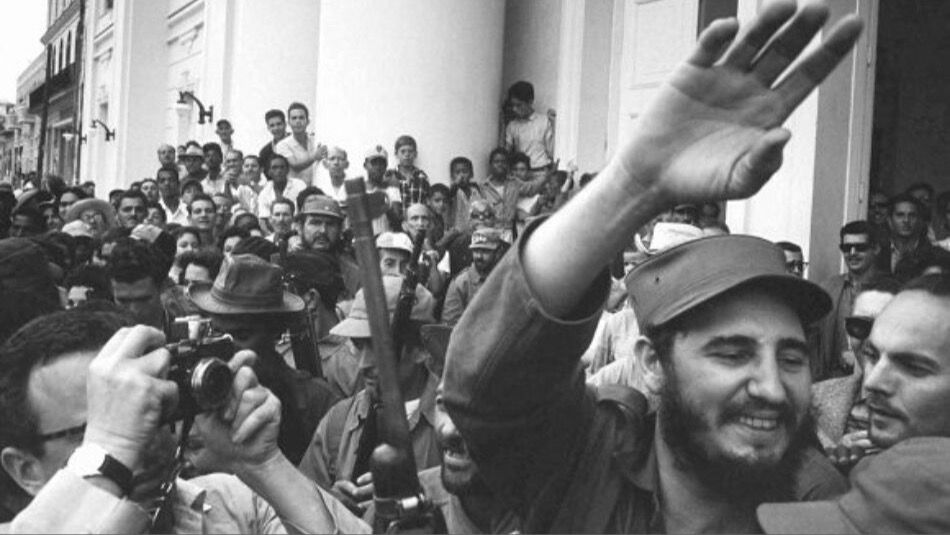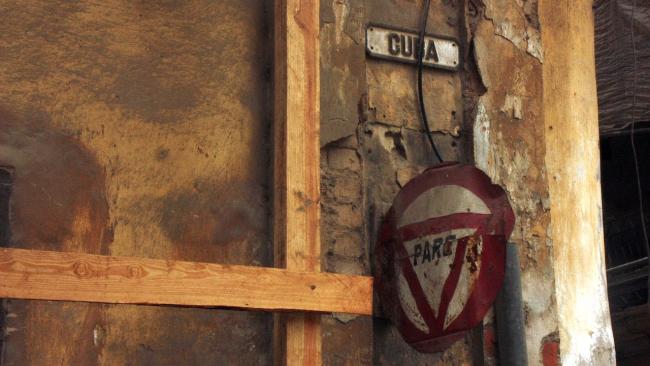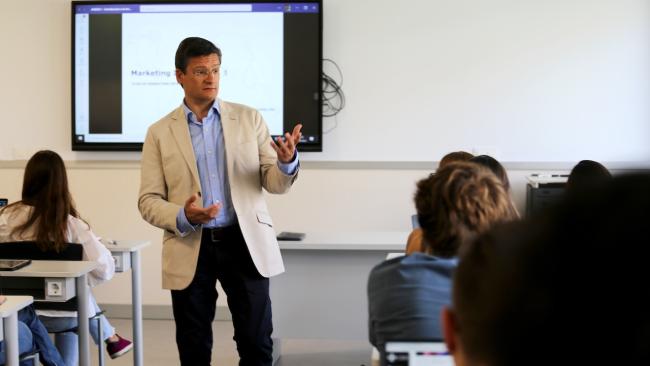Although in newspaper jargon the terms "dictatorship" and "tyranny" are interchangeable, there are substantial differences between the two regimes. A dictatorship, however long it may be (and there have been long ones) entails an intrinsically provisional character. Whether on his own initiative, or invited by some institution of the State (as happened in the Senate of ancient Rome, where the title was invented), a dictator assumes all powers and suspends or freezes the Constitution or the social contract in force, while saying that he still respects them. He justifies his rule as a keeper of the status quo, whose existence he claims to defend or strengthen through emergency action. Of course, these precepts are, in most cases, pretexts that the dictatorial regime violates with typical excesses, but this behavior only serves to spotlight its illegitimacy and underscore its precariousness and transience.
Tyranny, and particularly totalitarian tyranny —though at first he may argue that he intends to restore, for example, a degraded democracy— soon attacks traditions, subverts the past, rewrites history, razes institutions and supplants the entire social order with a narrative that has no other purpose than to justify the new regime, not as a transitory order of public necessity, but rather as a system that permanently stifles freedoms and violates justice in order to establish a new reality emanating from the word of the maximum leader, and that finds justification in an ideology of redemption, with that leader upheld as its high priest, champion and interpreter. Dictatorships, I insist, are by nature provisional, even if they last 40 years. Tyrannies, on other hand, though they may collapse or be overthrown, are created to be eternal. The totalitarian state —and, in particular, communist totalitarianism— is the most glaring example of this atrocious political aberration.
Unlike most of the nations in this hemisphere, we Cubans have been the victims of a tyranny, embodied in a charismatic leader who set out to make all things new in order to shore up an absolute power buttressed by an inscrutable entity, the Revolution, an angry deity, like the Sinaitic Yahweh, who demanded indisputable obedience.
That Revolution, in whose name a people was shackled, did not come without warning: for almost two generations, the stretch between 1933 and 1958, Cubans lived expecting revolution: it was instilled in our psyche —in classrooms, through books, the press, and even some levels of the State— that there existed a kind of political violence that would appear to solve every problem, right every wrong and correct every error.
The Revolution, with a capital letter, was constantly invoked, by the ignorant and the wise, by governments and by the opposition, as a panacea that would cure all the ills suffered by our young republic which, in retrospect, were not that many or that serious. The Cubans of that time (I do not count myself among them) expected the Revolution in the same way that the Christians of the first century expected the second coming of Christ. And the Revolution finally came and, in its name, a ruthless regime reduced a modern and prosperous country to penury, and thoroughly debased a noble nation. In the contemporary Americas, I can find no crime equal to it.
The Revolution and "culture" in Cuba
What role did "culture" play in this catastrophe? Or, put another way, what responsibility did our intellectuals have in this crime? Without wishing to excuse Castroism for its crimes against culture, I would like to highlight the original sin of the representatives and bearers of that culture, which was not one characterized by a lack of revolutionary faith, despite Che Guevara's allegations in this regard.
In the 19th century, although in Cuba, unlike in the rest of Latin America, an oppressive colonial stewardship survived, an educated class developed, associated with the Creole aristocracy, which did owe its fortune to the (slave) labor of the haciendas, but was imbued with the liberal ideas coming from the United States and Europe. In this class, in which fortunes, culture and political interest coincided, the ideal of the nation was forged, which, in the face of Spain's resistance, gave rise to two bloody and devastating wars of independence. Paradoxically, and perhaps inevitably, the struggle for independence, and the subsequent repression by the colonial power, undid this alliance, and the Republic arrived, established in 1902 amidst growing distrust and animosity among the ruling classes.
On the one hand, our affluent people in the twentieth century were, for the most part, the same ones who had become wealthy thanks to the purchase, at dirt cheap prices, of the assets expropriated by the colonial regime from Cubans of independence affiliations, who were never able to recover them. This philistine nouveau riche class was divorced from the ideal of the nation, and ceased to be allies of the intellectuals, who become their fiercest critics. In turn, both distance themselves from political work while degrading it. Politics grew into a business for thugs; with the usual exceptions, of course.
Starting in the late 1920s and, particularly, since the 1930s, intellectuals —especially in the field of journalism— dedicated themselves to demolishing the Republic with their criticisms, while politicians did so through their management. Disdain was enough for the rich. Cuba began a slow drift, waiting for a revolution to save it.
Thus, it is not wrong to say that "culture," understood as the set of artists, writers, creators, in general, and the institutions that represented them, was an accomplice of the revolutionary action that would subdue or destroy it. The Cuban intelligentsia, for the most part, signed a blank check to those who came to string up its noose.
From the beginning, the revolutionary regime expressed its interest in culture, in which it saw its natural ministry of propaganda. Those creators, who felt, not without reason, snubbed in pre-revolutionary society, were lured, like Hamelin's rats, to calls from those in power offering them editions, exhibitions, scenarios and space in the press. It was a very well-assembled and oiled trap, and those who did not fall into it were few. When, barely a year later, the instruments of the totalitarian state were already in full force, our intellectuals and artists had no other escape than exile, in some cases.
The regime laid its cards on the table in June 1961, in three days presided over by Fidel Castro himself at the National Library, which concluded with his famous "Words to the Intellectuals." Castro came in person to announce to that group of cornered enthusiasts the lines that would circumscribe their activity: "Inside the revolution (that neo-despotism that he embodied) everything; outside the revolution, no rights." The representatives of Cuban culture, present at that meeting, realized, with varying degrees of surprise and fear, that they were trapped by an all-encompassing power that demanded absolute submission.
It is curious that many of those in that room had read, a decade earlier, The Captive Mind, the very lucid essay by the poet, prose writer and translator Czestaw Milozs in which he explains how post-war Polish intellectuals fell into the trap set by the Communist state. The Cuban readers of this book, which was a primer of what would happen to them years later, were educated people, but the book did not serve as a warning. Stalin and the Soviet world, whose crimes the Russian leaders themselves condemned and documented a few years later, were seen as another reality, a remote monstrosity that could not take place in Cuba. Fidel Castro took it upon himself to dash those naive hopes. The Polish author said (I quote here from heart) that the Party was not satisfied with 99% loyalty. Rather, it demanded 100%, because it feared that in that 1% that did not submit a church could arise. In his famous words to the intellectuals, Cuba's tyrant reiterated this demand: "outside the revolution, no rights."
Barred was, of course, freedom, a word that totalitarian regimes hate more than any other and that for José Martí (who we Cubans love to quote so much) "is the right that every honest man has to think and speak without hypocrisy." This dictum, thus, highlights the pre-eminence of freedom of thought and expression as the foundation of fundamental freedoms. Benjamin Constant offered a somewhat lengthier definition: "Modern freedom is the right to live under only the rule of law; to not be arrested, or sentenced to death, or mistreated in any way, as a consequence of the arbitrary action of one or more individuals. It is everyone's right to give their opinion, choose their work, and do it; to dispose of their property and even abuse it; to come and go without asking permission, or providing justifications of their motives and movements. It is the right to gather with other individuals, whether to discuss their interests, to profess whatever faith one and their associates prefer; or, simply, to fill their days and do their work in whatever way best accords with their inclinations and fantasies. Finally, it is the right of everyone to influence the administration of the Government."
Cuba's tyrant hated freedom. Heberto Padilla shares, in the last chapter of his autobiographical book Self-Portrait of the Other, the interview he had with Castro a few days before leaving Cuba definitively, in which the leader told him: "Intellectuals are usually not interested in the social work of revolutions. They only care about their freedoms. I don't know what freedoms they refer to, but they always end up at odds with the Revolution."
Perhaps intoxicated by his own discourse, he could not understand that freedom was the principle on which all modern societies are founded and structured; those that we, appropriately, call democracies and that, with all their weaknesses and defects, constitute the apex of our civilization's political evolution, such that attacking freedom or suppressing it is not only a nefarious crime, but a deliberate defense of backwardness and regression. Like that gigantic statue standing in New York Harbor, with her torch raised high, it guides the people of the world, leading them on a path of progress, coexistence, prosperity, social harmony and peace. Freedom is non-negotiable.
Cuban intellectuals, upon the triumph of the Revolution, let themselves be swept up by rancor and seduced by a spurious order that bought them with privileges that, in the end, were ridiculous. By the time some woke up and wanted to escape, they found, as Lezama Lima said, an iron fist. The famous Padilla Case is paradigmatic.
The relationship between communist tyranny and culture, wherever it has existed, has been one of oppression by the State and submission by the intellectual class. It also, however, has invariably given rise to movements of rejection that, inside and outside the subjugated countries, have produced a body work, now quite extensive, of denunciation and condemnation calling for the recovery of stolen and violated freedom.
Freedom cannot be considered unrestricted
Freedom, then, is non-negotiable, such that we must look with great suspicion and judge as a public enemy anyone who proposes not just to suppress it, but even to undermine it, in favor of any political or social engineering project, as these will always, without exception, prove to me masks of despotism.
Freedom, however, cannot be considered unlimited, which is the mistake often made by "libertarians" or anarchists, who argue that it should be exercised without constraint (although this is impossible in practice) and who reject the State as the legitimate arbiter of social and individual freedoms. This tendency, I believe, must also be resisted and rejected. Freedom is a conquest of civilization and must be exercised responsibly and with a deep respect for the rights of others, since we do not live on desert islands. In other words, freedom is a collective enterprise, a task that we exercise and enjoy in community, and that must always be tempered with a sincere appreciation for justice, understood both in the ordinary sense, referring to the practice of law, and also in that of social equity.
Freedom and justice have been, for many centuries now, the twin pillars of Western civilization which, we can affirm, without modesty, is the greatest materialization of human knowledge and experience. Heberto Padilla, whom I quote here for the second time, used to say: "Europe is the world, the rest are the suburbs of History." I could not agree more. Insofar as we move away from Europe and its natural expanses, we delve into barbarism. European civilization (that is, the West) is what it is, and has reached that peak, precisely because of its combination, however tense or precarious, at times, of freedom and social justice.
Freedom is the ultimate distillation —in the sense of the most refined— of Greek thought. It is, in itself, a monument to reason (although it has sometimes been defended or propagated passionately), and it is the most rational result of the search for civilized coexistence, a concern of thinking men for centuries. Justice, on the other hand, is essentially a passion, and a Jewish one: for equity, for righteous and incorruptible retribution, for an order that ultimately stems from the revealed word of a God, who is, at the same time, a father and judge.
Justice —understood as social justice— is Israel's contribution to the West, in whose mold it entered, via Christianity, and which has struggled with freedom throughout this time. This struggle has given rise to bitter and bloody ideological battles in a conflict that remains unresolved even today. But, are these values really irreconcilable? I believe that they are, in fact, inextricable from the West's cultural fabric.
In the epilogue to the History of the People of Israel, Ernesto Renan says (and one notices here his effort to reconcile the two capital concepts): "Judaism and Christianity will disappear: the Jewish project will have its end. The Greek project —that is, the essence, rational and experimental civilization, without charlatanism, without revelations based on reason and freedom— will continue, on the other hand, without end (...) Israel's footprint, however, will be eternal. Israel was the first to give shape to the cry of the people, to the grievances of the poor, to the obstinate claims of those who thirst for justice. Israel loved justice so much that, not finding the world just, it condemned it to perish. Judaism and Christianity represented in antiquity what socialism represents in modern times. Socialism will not definitively triumph. Rather, freedom, with its consequences, will remain the law of the world. But the freedom of each will be bought with strong concessions made at everyone's expense."
Thus, we face the inevitable reconciliation, in which the mixing of water and oil is inseparable. The truth is that freedom, as we understand it today, cannot exclude justice, whose full exercise is inconceivable without a framework of freedom.
The Cuban revolution, that is, the long tyranny of Castro and his henchmen and followers, was made possible, among other things, by a cunning emphasis on pitting justice against freedom; in the name of the former, ultimately both were subverted, as freedom is the only guarantor of justice. May the peoples of the world —and, in particular, the Americas— come to understand that it is not possible to carry out any social justice program if it entails sacrificing or denying freedom; just as freedom, with all its benefits, is impracticable at the expense of the principle of justice!
Reaching this conviction brings immense peace of mind, while at the same time making it impossible, in the name of either of these two values that underlying and structure the most flourishing civilization in history, to subjugate its inevitable twin. Freedom and justice are, in truth, faces of the same coin underpins our collective redemption.
This text was read at the "40 years of Argentinean Federal Democracy" colloquium, which took place in Tucumán, Argentina, on November 28 and 29, 2023, sponsored by the Federalism and Freedom Foundation.





Me encantó este artículo. Con un lenguaje fácil de entender para todos. Siempre he creído que estos dos conceptos Libertad y Justicia Social, el Tirano de Fidel Castro los utilizó y cambio para su beneficio personal y conseguir sus objetivos. Fue un lector de Napoleón Bonaparte y en especial del Italiano Antonio Gramsci: Este COMUNISTA , fundador del Partido Italiano expresó: " La conquista del Poder Cultural es previa a la del Poder Político, y esto se logra mediante la acción concertada de los Intelectuales llamados orgánicos infiltrados en todos los medios de Comunicación y Expresión." El Tirano de los Castro hicieron suyas estás palabras, sabían que para establecer que su Poder Político perdure tenían que tener el Control absoluto de los Medios de Comunicación, y con ellos se manipula la opinión de las masas. Mediante el uso de los Medios de Comunicación, lograron conseguir que la sociedad pensará lo que ellos deseaban. El PCC obtuvo el control y sumisión de la Cultura y educación.